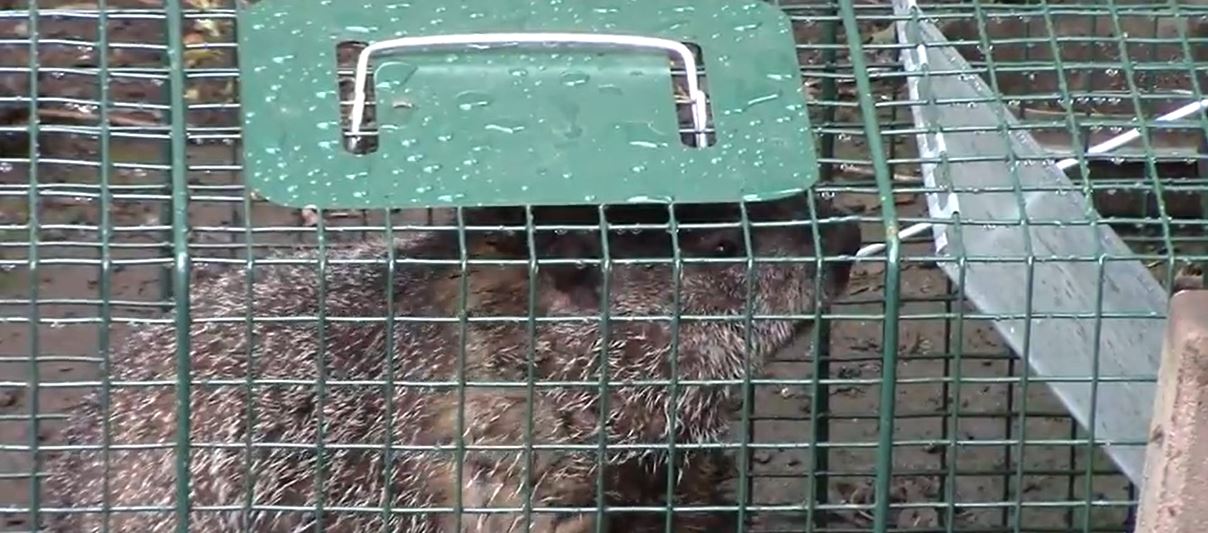Groundhog Prevention Tips: How To Keep Groundhogs Away

We may use groundhogs to tell whether winter is almost over, but they can be a huge nuisance for anyone who takes pride in their lawn, particularly if you have a garden. These animals are known for uprooting vegetables and other plants and eating a significant amount of your garden in a short period of time. Even if they simply make their burrows on your property, you will notice some undesirable changes to your lawn and stripped bark. To stop this potential damage, you want to prevent groundhogs from getting on your property and choosing to make it their home.
Home Repairs
Groundhogs tend to make their burrows underground in the dirt, but they will sometimes turn a crawlspace into a den if the option is available. The best way to prevent this from happening is to make sure that your home is in top shape, especially along the areas close to the ground. Pay careful attention to vents and holes as these may give the groundhogs access to your home. Repair loose siding, put a mesh cover on your chimney, and fill in crevices with caulk. Doing these things should help keep groundhogs out of your home.
Fences
It is possible to use a fence to keep groundhogs out of a specific area, but you have to be careful when setting it up. Remember that these animals are good climbers and excellent diggers. Make sure that there aren't any openings in your fence larger than an inch across. Make sure that you also dig a trench around the area, such as your garden, that goes a foot deep. You will need to fill this trench with the fence as well. Keep in mind, however, that these animals have been known to dig up to 5 feet deep so fences aren't guaranteed to keep them out.
Eliminate Nesting Areas
While groundhogs prefer burrows dug in the ground, they will sometimes nest in other convenient areas, such as wood piles. To prevent the animals from doing this on your property, try to keep woodpiles or other similar objects away from your house and elevated off the ground if possible.
Minimize Potential Food
When looking for a place to make their burrows, groundhogs will select a location with ready access to food. This means that by limiting their access to potential food, you can help prevent these animals. Try trimming back various plants that these marmots will eat; as a bonus, this will also reduce potential shelter. If you have tree stumps, consider getting rid of them as groundhogs will use these to grind down their teeth and may eat the bark. You should also clean up any piles of debris and brush and harvest your crops as soon as you can.
Natural Remedies And Repellents
You will find numerous suggestions for repellents and natural remedies to keep groundhogs off your property. Some will help to some extent while others will not make any difference at all. Epsom salts are a common suggestion as groundhogs theoretically don't like the taste and as a bonus, they can help your plants grow. Keep in mind, however, that this remedy will be washed away every time it rains so you will have to reapply it. Ammonia is another popular recommendation since groundhogs don't like the smell, but as with Epsom salts, it needs to be reapplied frequently, especially after rain.
Eggs may also work to help prevent groundhogs. The idea is to crack an egg on top of a burrow and then cover up the burrow using dirt. You can also theoretically do the same thing with a spoonful of castor oil. An alternative would be to spray a mixture of castor oil and water. You can create a similar spray to spread throughout your lawn using any type of hot pepper and water. Keep in mind, however, that none of these repellents is guaranteed to keep the groundhogs away.
Get A Dog
If you have been thinking of getting a dog for a while and are concerned about preventing groundhogs, then now is the time to adopt your pooch. A big dog should help scare the groundhogs as they are a natural predator. Ideally, groundhogs will see or smell the dog and choose to get a snack or make their burrow somewhere else.
Other Considerations
You can try various repellents, but the best method of keeping groundhogs off your property is to make it undesirable for them. This means removing potential food and shelter sources if possible. If you have a garden, try opting for plants that groundhogs don't like. No matter the type of property you have, make sure that the main building is secure so groundhogs can't get inside even if they do enter your property. Consider contacting a professional to help evaluate your property and see what changes you can make to discourage groundhogs.
Read the How to get rid of groundhogs page for helpful information and to learn more about Groundhog Prevention Tips: How To Keep Groundhogs Away

